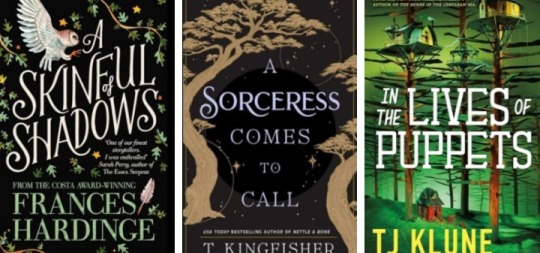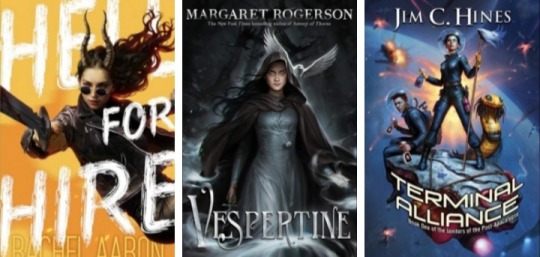#The Hulda Trilogy
Explore tagged Tumblr posts
Text
The Island by Ragnar Jonasson

Title: The Island Author: Ragnar Jonasson Series: The Hulda Trilogy #2 Number of Pages: 336 Genre: International Mystery & Crime Thrillers Publisher: Minotaur Books Date of Original Publication: May 21, 2019 ISBN: 978-125019377
As the winter draws to a close I am looking forward to spring and reading outside! This was a nice one to finish outdoors along a river the other day. Surprisingly April has been busy but I’ve had time to read!
This is book 2 of the Hulda trilogy by Ragnar Jonasson. The Island was an entertaining read. The characters are likeable and the story was interesting. I was quite surprised as I did not like book 1: The Darkness. The storyline of that one was terribly boring and I didn’t care for Hulda. Book 2 is set before book 1 regarding the case of two murders set ten years apart with relation to the same people. The island is an ominous and treacherous place, however people like to visit and mysterious things happen.
I like all of the characters except for the main character. Each character has their own personality, roles, and develop well during the story. I like the twists in the book and how it has multiple events that keep the book moving. No slow parts and comes together nicely.
I don’t like Hulda, unfortunately I think she’s quite drab and her life is quite boring. She also doesn’t seem to have much of a personality, I wish the author would give her a little bit of spunk. I’m also not a fan that the trilogy is not in chronological order. Book 2 is set before book 1. Wonder if book 3 is set before book 2. Oh bother.
★★★★ It’s worth a read. I actually think I would recommend skipping book 1 and going directly to this one.
~
Up Next: Dark Secret (The Dark Series Book 15) by Christine Feehan
Yearly Goal Marker:
Book Goal: 10/75 – 13.3% Page Goal: 3.2K/10k – 32.8%
Follow me on LibraryThing, Goodreads, and Amazon. Same handle: OMBWarrior47
#The Island#Ragnar Jonasson#Icelandic#Crime Thrillers#International Mystery#Book Review#The Hulda Series#The Hulda Trilogy
0 notes
Photo

Insel von Ragnar Jónasson ist der zweite Band der Hulda-Trilogie und handelt von Hulda Hermannsdóttir, Kommissarin bei der Polizei Reykjavík, welche auf dem Höhepunkt ihrer Karriere ist und zu einer abgelegenen Insel geschickt wird. Ein schrecklicher Unfall ist geschehen. Oder war es Mord, dessen Ursprung in der Vergangenheit aller Beteiligten liegt?
#btb#Hulda Hermannsdóttir#Hulda Trilogie#Insel#Island#Krimi#Mord#Ragnar Jónasson#Theater#Vergangenheit#Bücher#Hörbücher
0 notes
Text
Let's talk books. Sorted in threes by vibes.
-------
I Support Women's Wrongs (murder, slaughter and body horror galore).
---

How to Become the Dark Lord and Die Trying ⭐⭐⭐⭐½ by Django Wexler - A woman from Earth is dropped into a magical realm, meant to save the Kingdom from the FoRCes of DaRKneSSss... except, unfortunately that might have been a thousand years worth of time loops ago, so it's rather time to lose one's temper and decide to become the Dark Lord herself.
Main character -> basically Deadpool (measured in sanity, humor and levels of bisexual horniness)).
Someone You Can Build a Nest In ⭐⭐⭐⭐ by John Wiswell - Shesheshen, a shapechanging monster who's rudely interrupted during her hibernation by hunters. Manages to to eat one of them, unfortunately she also gets shot by an arrow and falls off a cliff. On the bright side she meets a lovely human woman she might end up falling in love with so much... she'll want to build a nest in her (it's possible there's some Cultural Differences that need to be worked through).
Hench ⭐⭐⭐⭐ by Natalie Zina Walschots - Anna's latest temp job for a villain (because even supervillains need office help) ends with her carelessly injured by a superhero, laid off and with injured mobility for the foreseeable future (because human bodies don't see much difference between getting hit by a truck and getting moved out of way by someone able to pick up a truck). Angry, disillusioned, and looking for some vengeful payback she starts compiling the statistics of exactly how much suffering gets left behind the heroes and in quick order finds a new job working for one of the worst supervillains in the neighborhood.
-------
Extremely Competent Women Show Up to Fix Everyone's Shit (with a whallop of romance which was actually sweet instead of irritating)
---

The Witchwood Knot ⭐⭐⭐⭐⭐ by Olivia Atwater - Winifred Hall was invited to the Witchwood Manor under the pretense of being the governess for a very bratty kid, but when said boy suddenly turns into a very quiet and perfectly bland boy overnight it's very obvious her charge has been stolen by faeries (and it might have something to do with the actual reason she's there). Rescue however is complicated by some factors, one, there being something terribly dark and wrong about the house (normal houses don't have screaming faces in the walls), another, the faerie man posing as the manor's butler who would very much like to make her run screaming the way so many servants had before her (unfortunately for him, she's not even half as scared of him as she is the eyes of the father of her charge).
This one's about dealing with past trauma, and otherworldly terrors paling in comparison to mundane monsters, set in a very beautiful and dark and shiver-inducing Victorian time world where the Fair Folk are very real.
(Same world as her Regency Faerie Tales trilogy that Started with Half a Soul but it's not necessary to read that one first to enjoy this one)
Keeper of Enchanted Rooms ⭐⭐⭐⭐½ by Charlie N. Holmberg - Merritt Fernsby inherits a house only to be immediately taken hostage by what turns out to be a very stubborn and opinionated magical house. Hulda Larkin of the Boston Institute for the Keeping of Enchanted Rooms goes there to facilitate the relationship between the house and its new owner.
It's supposed to be a very simple job. Unfortunately there's a third POV character in this book (no, not the Whimbrel House, though I adore that house and *insert here the Rosa Diaz gif about her new puppy and how she would kill everyone in this room and then herself if anything were to happen to that dog*). Anyway, they're a bit... uhhh... let's go with Bad News.
Emily Wilde's Encyclopedia of Faeries ⭐⭐⭐⭐⭐ by Heather Fawcett - As one might expect from the title, Emily (a Cambridge scholar) wants to write the first ever encyclopedia of faeries. And she's brilliant enough to do it, what she's terrible at is people (*insert autistic character alert here*).
Someone else might then say it's lucky that a fellow scholar with a far easier time at charming people has stuck his toes in her reaserch trip into the Hidden Ones... that person however doesn't understand how irritating, frustrating and maddening her academic rival Wendell Bambleby actually is.
What follows is a story filled with winter snows, some terrible fae, some adorable fae, some not-very-secret fae, the goodest of good dogs, and lots and lots of squabbling. It's the best.
-------
Dark and Impactful Stories about Children Who Decide on Their Own Paths
---

A Skinful of Shadows ⭐⭐⭐⭐½ by Frances Hardinge - Kate, an orphan and the illegitimate daughter of some stuffy (and evil) aristocrats runs away because being a bastard doesn't mean she didn't inherit the family magic that allows her to get possessed by the dead.
A dead bear ghost is one thing, a Get Out situation is something else entirely.
A Sorceress Comes to Call ⭐⭐⭐⭐⭐ by T. Kingfisher - Cordelia isn't allowed friends or the privacy of closed doors, and whenever she's done something she shouldn't - a category too unpredictable to guard against - she's not allowed power over her own body.
Because her mother is an evil sorceress (think Regina and Cora... except somehow even worse). An evil sorceress that has found herself a Squire to lure into a marriage.
Hester is an old maid living with her brother, a Squire (well look at them coincidences), when said brother acquires a woman clearly set on his fortune. The plan is only to save her brother, except Hester can't help noticing how the woman's daughter keeps flinching in her mother's presence.
In The Lives of Puppets ⭐⭐⭐⭐ by TJ Klune - A family can be an android inventor, his human son (*homoromantic asexual alert*), a sadistic nurse droid, and a very emotional roomba.
And it can be a very happy family. Until one uncovers and wakes up an android that shares a very Skynet past with one's father, said father gets kidnapped, and one has to go on a journey to get him back.
(A book I like to call Sci-fi Reverse Pinocchio)
-------
Unraveling an Unjust System (and a hero that - on a scale from occasionally to constantly - hears a disembodied voice directly in their heads okay the connection between these three is a bit of a stretch but they're all great books so shut up)
---

Hell for Hire ⭐⭐⭐⭐½ by Rachel Aaron - 5000 years ago Gilgamesh conquered the heavens, enslaved the demons and made it so that the only road to magic humanity had access, was through him.
Now, however a mercenary team made up of free demons gets hired by a Blackwood witch to protect him (and his familiar, the talking cat named Boston) while he puts down roots (literally) inside the new forest grove he's about to start so that he can stand up against the warlocks after him.
The witch quickly becomes the best client Bex and her crew have ever had (after all, warlocks under the rule of the Eternal King Gilgamesh are slavers of their kind, they are delighted at the chance to kill some).
Vespertine ⭐⭐⭐⭐⭐ by Margaret Rogerson - In a world where the veil between the living and the dead has been kinda broken Artemisia (*another autistic character alert*) is training to be a Gray Sister (magic nun).
Until her convent gets attacked by possessed soldiers and she has no choice but to pick up a Saint's Relic containing a malevolent revenant to protect it.
Problem. Only a Vespertine is supposed to do it. Another problem. The only one "alive" who can teach her to be a Vespertine is the revenant. Another another problem. The revenant cannot be trusted and if she loses control to it, the death toll will be counted in cities.
Terminal Alliance ⭐⭐⭐⭐¾ by Jim C. Hines - Post Zombie Apocalypse, where some aliens showed up, sort of cured the zombies and took the (mostly) cured zombies into their military.
Which leads us to Marion Adamopoulos, also known as Mops, the Leutenant in charge of Shipboard Hygene and Sanitation of the Earth Mercenary Corps Ship Pufferfish.
Right up until a bioweapon turns the entire crew except her crew back into zombies. Congratulations, she's the captain now.
(Space Janitors save the universe story).
-------
#book recs#fantasy books#science fiction books#book rec#how to become the dark lord and die trying#someone you can build a nest in#hench#the witchwood knot#keeper of enchanted rooms#emily wilde’s encyclopaedia of faeries#a skinful of shadows#a sorceress comes to call#in the lives of puppets#hell for hire#vespertine#terminal alliance#django wexler#john wiswell#natalie zina walschots#olivia atwater#charlie n holmberg#heather fawcett#frances hardinge#t kingfisher#tj klune#rachel aaron#margaret rogerson#jim c hines#terapsina rambles#terapsina's book rambles
225 notes
·
View notes
Text
Ragnar Jónasson - Insel
Ragnar Jónasson – Insel
Ragnar Jónasson – Insel Hulda Hermannsdóttir muss von der isländischen Hauptstadt auf die zerklüftete Insel Elliðaey reisen, denn dort wirft der Tod einer jungen Frau Fragen auf. Gemeinsam mit drei Freunden verbrachte sie einige Tage in einem Sommerhaus. Nachts scheint Klara alleine die Hütte verlassen zu haben und an einem steilen Felsen abgestürzt zu sein. Doch die Obduktion legt anderes nahe.…

View On WordPress
#Elliðaey#Familie#Freunde#Hulda-Trilogie#insel#Island#Krimi#Kriminalroman#Mord#Rache#Ragnar Jónasson#Rezension#Schwester#Tod#Unfall#Vater#Vorgesetzter
0 notes
Text
The Mage Winds / Mercedes Lackey
Deze trilogie, die volgt op Heralds of Valdemar, met het verhaal van Talia, vertelt hoe kroonprinses Elspeth op zoek gaat naar iemand die herauten kan opleiden tot magiërs. Sinds Vanyel zijn er geen heraut-magiërs meer geweest; sterker nog, het lijkt alsof heel Valdemar is vergeten dat magie ook een optie is, en dat er nog steeds, zo nu en dan, herauten beschikken over een magische gift. Maar de bescherming van Valdemar tegen magie lijkt te verminderen, terwijl hun vijand Ancar van Hardorn zich omringt met magiërs.
The next try Ancar makes is going to involve magic, I know it is — combative magic, war-magic, the kind they use south of Rethwellan. The kind the Skybolts are used to seeing. Kero says so, and I think she's right. She can talk about real magic, and I can... and that might be a clue to what I need to be doing right there. For Valdemar was not ready to cope with magic, especially not within its borders. For all the efforts to prepare the populace, for all the research that was supposed to have been done in the archives, very little had actually been accomplished. Yes, the ballads of Vanyel's time and earlier had been revived, but there was very much a feeling of "but it can't happen now" in the people Elspeth had talked to. And she wasn't the only one to have come to that conclusion. Kero had said much the same thing. The Captain was worried. Elspeth licked her bitten lip, and thought hard. Kero's told me a lot of stories she hasn't even told Mother. Some of the things the Skybolts had to deal with — and those were just minor magics. "Most of the time the major magics don't get used," she'd said more than once. That was because the major mages tended to cancel one another out. Adept-class mages tended to be in teaching, or in some otherwise less-hazardous aspect of their profession. Most mages, Adept-class or not, were unwilling to risk themselves in all-out mage-duels for the sake of a mere employer. Most employers were reluctant to antagonize them. But when the ruler himself was a mage, or backed by one —a powerful mage, at that —the rules changed. Mages could be coerced, like anyone else; or blackmailed, or bribed, if the offer was high enough. There was already evidence of coercion, magical and otherwise; outright control, like the men of his armies. And where there was a power broker, there were always those who wanted power above all else and were willing to pay any price to get it. So Valdemar wasn't protected anymore because there was someone willing to pay the price of breaking the protections.
[SPOILER ALERT] In het eerste boek, Winds of Fate, vertrekken Elspeth en Skiff op zoek naar een leermeester. Ze komen terecht in een vallei van de Tayledras, de Hawkbrothers. Darkwind, lid van deze k'Sheyna, beseft dat Elspeth een sterke magische gift heeft en niet alleen voor de veiligheid van Valdemar snel moet worden opgeleid. De vallei wordt -- zonder dat Darkwind dat al beseft -- belaagd door een zeer sterke magiër Mornelith Falconsbane, die zijn oog nu ook op Elspeth (en de Gezellen) heeft laten vallen. Met vereende krachten weten ze hem af te slaan. Maar in het tweede boek, Winds of Change, blijkt dat dit niet afdoende is geweest. Versterkt met hulp van de Shin'a'in, griffioenen, en de dochter van Falconsbane, Nyara, die aan zijn mishandelingen is ontsnapt, lukt het hen de vallei te verdedigen. Ze denken nu Falconsbane eindelijk te hebben verslagen. In Winds of Fury probeert koning Ancar tovermacht te verkrijgen die Hulda hem niet heeft willen geven. Hij bevrijdt daarbij een sterk verzwakte Falconsbane uit het niemandsland tussen de portalen waar hij was opgesloten. Elspeth en Skiff zijn met hun versterking -- Darkwind, Firesong, Nyara en de griffioenen -- teruggekeerd in Valdemar, om te ontdekken dat het een race tegen de tijd wordt om Ancar te verslaan voordat Falconsbane weer op kracht is gekomen.
2 notes
·
View notes
Note
What's Vidar and Hulda 👀👀👀
VIDAR AND HULDA are the protagonists of one of my fantasy novels that I started developing… 5?? 6???? Years ago. Depending on how long you’ve hung around Creating Chaos, you might have noticed me blabbering on about an aroace prince forced to marry a lesbian princess. YEAH. That’s them.
Also depending on how long you’ve been around, you might also have heard me talk about Sigfrid and Eira. Their story takes place in the same kingdom as Vidar and Hulda’s, just a good couple of hundreds of years later.
Also also, because this is technically a trilogy of sorts, there is also the short story about Ida and Amalia between the two; a short story which I basically typed out the entire first rough draft of during a fever haze this spring. And this is so much more than you asked for, but sometimes I can’t help myself.
#Anonymous#storytelling september#iosta#just in case i need a tag for this because that's the name of their file in my drive
0 notes
Text
The Mist by Ragnar Jonasson

Title: The Mist Author: Ragnar Jonasson Series: The Hulda Trilogy #3 Number of Pages: 300 Genre: International Mystery & Crime Publisher: Penguin Date of Original Publication: November 12, 2020 ISBN: 978-1405934886
The Mist is Ragnar Jonasson’s ending novel to his Hulda Trilogy. The trilogy focuses on a woman named Hulda who works as an investigator in Iceland. This series is interesting because it’s reverse chronological order. The first book starts with her death and the third book ends with how her family was torn apart.
I enjoyed the ending of this series. It was interesting and Hulda was a likeable character. The murder mystery in this storyline was interesting and unique. The new characters were well rounded and the story flowed smoothly. Jonasson has an easy and fluid writing style that makes it an enjoyable read. I am sad that he only went for 3 books with this series.
I honestly didn’t like the first book of this series. It was long and wordy and the storyline wasn’t interesting to me. I thought the second book was much different and it ended up being my favorite of the trilogy. If you can get past the first book the next two are definitely worth the read.
★★★★ I would recommend.
~
Up Next:
-Dark World by Zak Bagans
-Cherish by Tracy Wolff – (Crave #6)
-Death Row: The Final Minutes – Michelle Lyons
Yearly Goal Markers:
Book Goal: 4/75 = 5.3%
Page Goal: 1.5/15k = 10.1%
Follow me on LibraryThing, Goodreads, and Amazon. Same handle: OMBWarrior47
0 notes
Text
Vanished in Vermillion by Lou Raguse

Title: Vanished in Vermillion Author: Lou Raguse Series: N/A Number of Pages: 379 Genre: Forensic Science Law & State and Local True Crime Publisher: Post Hill Press Date of Original Publication: February 7, 2023 ISBN: 978-1637587256
Not my typical read but it’s nonfiction month in my mystery book club and this was the choice. The author is a reporter for one of my local news channels so it was close to home.
Vanished in Vermillion by Lou Raguse is a true mystery story of two girls who went missing in 1971 in Vermillion, South Dakota.
The book moves in chronological order. It starts with explaining the girls home life and background of their family and then moves to the events that happened in 1971 the day they disappeared. What was last known, where they were last seen, and how the local police department handled the investigation.
Most of the middle of the book is a guessing game of what happened to the girls as their car and bodies were not found. The author goes over other events in the area and criminals that are relative to the area. The investigation of the disappearance gets handed off to several people in law enforcement and each one implements something different with their ideas.
A few people in prison are given their stories as police suspected that these inmates may have had something to do with the disappearance and one was even tried for their murders.
The ending of the book goes over the discovery of the girls bodies finally in 2013. 42 years after their disappearance the bodies are found and a hypothesis was formed on what happened to them. Many of the family and friends of the girls had died by this point but the story finally gets its closure.
I liked this book, when I’m normally not a fan of nonfiction. It wasn’t boring and the storyline kept moving. I’m glad the girls were finally found but this book really shows how disappointing local, state, and federal law enforcement officers can be. These girls could’ve been found probably in the same year they disappeared, if local law enforcement did their job in the first place. And that is scary seeing as hundreds of people are still missing in the US to date.
★★★★ I would recommend it if you’re looking for some non-fiction reading.
~
Up Next:
-Dark World by Zak Bagans
-Cherish by Tracy Wolff – (Crave #6)
-The Mist – Ragnar Jonasson - (Hulda Trilogy #3)
Yearly Goal Markers:
Book Goal: 3/75 = 4%
Page Goal: 1.2/15k = 8.1%
Follow me on LibraryThing, Goodreads, and Amazon. Same handle: OMBWarrior47
0 notes
Photo

Dunkel von Ragnar Jónasson ist der erste Band der Hulda-Trilogie und handelt von Hulda Hermannsdóttir, Kommissarin aus Reykjavík. Kurz vor ihrer Pensionierung stehend, bekommt sie von ihrem Chef noch ein Gnadenbrot. Sie darf, während ihrer letzten Tage bei der Polizei, in einem Cold Case ihrer Wahl ermitteln.
#Ari#btb#Dark Iceland#Island#Krimi#Mord#Ragnar Jónasson#Schneeblind#Siglufjörður#Theater#Vergangenheit#Bücher#Hörbücher
0 notes
Text
Ragnar Jónasson – DUNKEL
Sie hat nicht mehr lange bis zu ihrer Pensionierung, aber die letzten Monate wollte die Kommissarin Hulda Hermannsdóttir noch mit gewohntem Elan ihrer Arbeit nachgehen, doch dann eröffnet ihr Chef ihr, dass ein jüngerer Kollege sie schon in zwei Wochen ersetzten wird. Sie erbittet sich so lange noch einen Fall und greift zu einer scheinbar erledigten Sache, die ihr komisch vorkommt. Die russische Asylbewerberin Elena wurde tot am Strand aufgefunden, die Verletzungen waren nicht eindeutig einer Straftat zuzuordnen und so wurde der Fall als Suizid abgelegt. Doch weshalb sollte sich die junge Frau das Leben nehmen, gerade nachdem ihrem Asylantrag stattgegeben wurde? Hulda beginnt nachzuforschen und stößt schon bald auf weitere Details, offenbar wurde in dem Fall sehr schlampig ermittelt und ihre These von einem Mordfall nimmt immer konkretere Formen an. Je tiefer Hulda sich in die Sache vergräbt, desto weniger merkt sie jedoch, was um sie herum geschieht und dass sie selbst gerade ins Fadenkreuz gleich mehrere Menschen gerät.
„Dunkel“ ist der Auftakt zu einer offenbar eher düsteren Trilogie. Isländische Krimis leben häufig von einer melancholisch-dunklen Atmosphäre, die zu der monatelangen Dunkelheit im Land passt. Der Thriller überzeugt jedoch vor allem durch eine interessante Protagonistin, die einerseits als clevere Kommissarin punktet, jedoch auch eine zweite, verletzliche Seite hat, die bisweilen ihr Urteils- und Rechtsvermögen herausfordert. Nach und nach wird ihre Lebensgeschichte enthüllt, die wenig Erquickliches zu bieten hat und schließlich mit einem großen und vor allem unerwarteten Knall aufwartet.
Der Kriminalfall um die tote Elena bietet einige vielversprechende Spuren ohne zu schnell gelöst zu werden. Parallel erzählt werden die scheinbar letzten und verhängnisvollen Stunden der jungen Frau, so dass man sich der Auflösung von zwei Seiten annähert, bis man feststellt, dass man geschickt in die Falle gelenkt wurde und so manches scheinbar klare Faktum doch ganz anders zu deuten ist. Die größte Überraschung indes gelingt dem Autor mit dem Ende, von dem ich noch nicht weiß, wie ich es einordnen soll, unerwartet war es auf jeden Fall.
Ein gelungener Auftakt, der große Erwartungen an die Folgebände weckt. Passende Stimmung für eine außergewöhnliche Protagonistin.
https://missmesmerized.wordpress.com/2020/05/25/ragnar-jonasson-dunkel/

0 notes